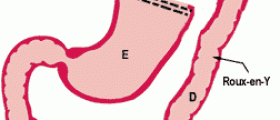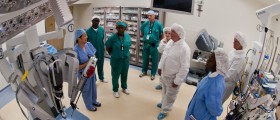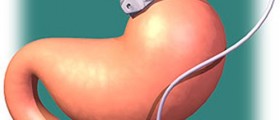
Definition
Gastric bypass surgery is actually a surgical procedure that is done in order to help obese people to lose weight. The patients who undergo this surgery are extremely obese and this is their only chance to lose weight and improve health and possibly prevent some of the complications that result from obesity. The goal of the surgery is to decrease the volume of the stomach and therefore the one will fill fullness after eating only small portions of food. This is done by division of stomach into two parts, the upper smaller one and the lower bigger one. No matter how careful surgeon is the very operation carries numerous risks and consequent complications are rather common. Some patients even die within a month after the surgery.
Complications
Infection is just one of the complications which does not happen very often and is easily treated. Infection can affect the wound or it can present in peritonitis and abscesses. Pneumonia and urinary infections are common as well. Bleeding is another complication that may occur within gastrointestinal tract or the blood can collect in peritoneum. In case of bleeding another operation is performed and lost blood is compensated with transfusions.
As operation actually includes opening of the abdomen and rearranging of the abdominal organs a patient can develop postoperative hernia. This rearrangement can even cause later obstruction in passage of stool. This complication mainly develops long after the surgery.
Patients who have undergone any kind of operation are prone to hypercoagulation. The prolonged stay in bed also increases the risk of blood clotting. This is even more present in obese people. Therefore the postoperative regime includes application of anticoagulants.
There are additional complications that result from the manipulations with the stomach. One may suffer from leakage at the connection spot of stomach and intestines. This spot where stomach is surgically attached to intestines may become narrower. This narrowing reduces the normal passage of food. Both of these complications require another surgical repair. One may even develop ulcers at the place of connection between the stomach and small intestines. This condition is treated with antacids.
One more complication is dumping syndrome. This condition can be evaded by reduction in consumption of food rich in sugar and if a patient sticks to prescribed dietary regimes.
Nutrition deficiencies that are common after gastric bypass surgery can be easily avoided if one follows the doctor's advice. He or she has to have proper number of meals a day consume enough proteins and to satisfy the required daily doses of vitamins and minerals by using special supplements.
















Your thoughts on this
Loading...